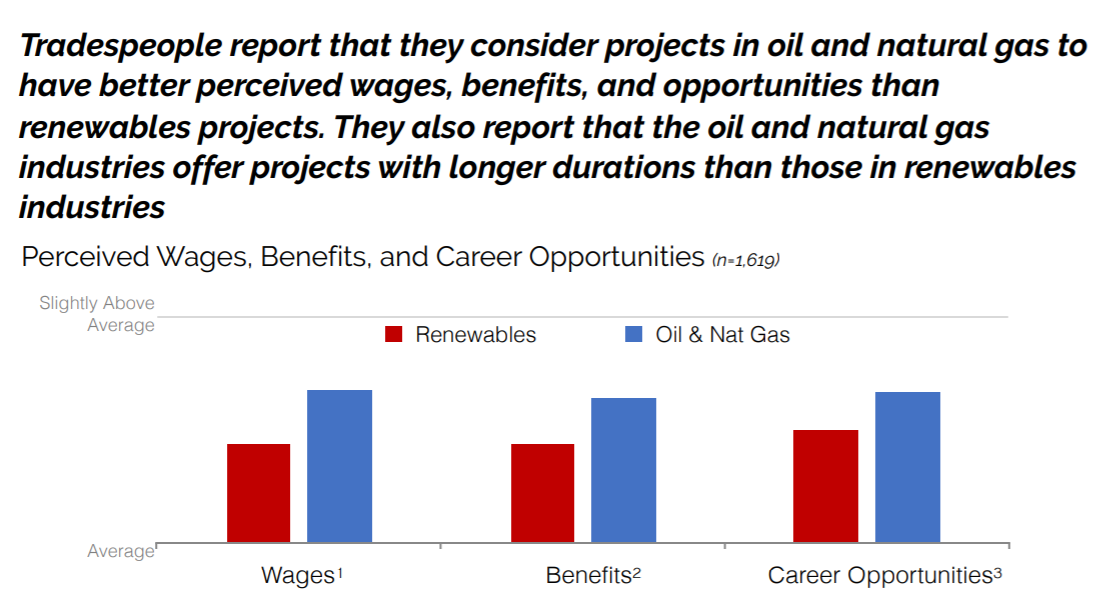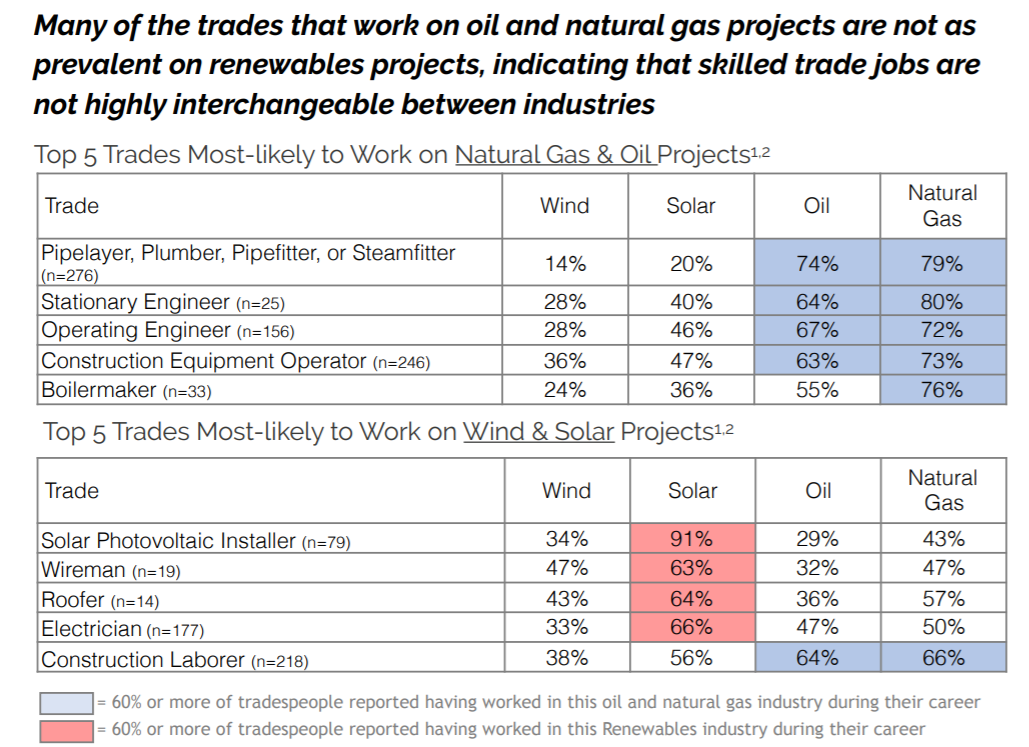A number of political candidates have brought up the notion of “retraining” or “replacing” existing careers and the oil and gas industries with employment in solar, wind and other renewable industries. North America’s Building Trades Unions (NABTU) took the time to survey workers in these areas and examine existing BLSA data, and discovered several notable takeaways:
- Tradespeople report that oil and natural gas jobs offer better pay, benefits, and career opportunities than renewable jobs.
In the course of conducting interviews, focus groups and surveys, NABTU found that tradespeople working in energy construction view oil and natural gas jobs as providing better wages, benefits and career opportunities than renewable jobs. [M1]

- Oil and natural gas jobs offer better project variety, skills development and job longevity than renewables
Researchers discovered that tradespeople report “better project variety, skill development, and project consistency in the oil and natural gas industries compared to the work being done in the wind and solar industries.”
Tradespeople credited the need for ongoing maintenance as well as frequent technological upgrades as one of the reasons that the oil and gas industries offered longer project durations, which help provide tradespeople with steadier income and more consistent benefits.
- Oil and natural gas jobs are not interchangeable with renewable jobs.
While the idea of simply transferring tradespeople from one industry to another clearly appeals to some policymakers, the reality is that many of the highly-trained, skilled professions long supported by the oil and natural gas industries do not easily translate to renewables industries. Renewables don’t generally include pipelines or require a team of engineers to oversee the sophisticated facilities used by oil and gas companies.
As Tom Kriger, NABTU's director of education and research, noted, "You can't just interchange the jobs from oil and gas construction to renewables construction, because you'll leave out many workers.”

Bottom Line: Policymakers should rethink efforts to force highly skilled tradespeople from good oil and gas jobs to renewable jobs.
As BlueGreen’s executive director Jason Walsh said, “Until the job-quality gap is closed, unions and their allies will rightly push back on the notion that replacing fossil fuels with renewable energy is an across-the-board, slam-dunk public good.”


